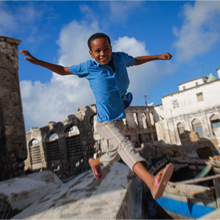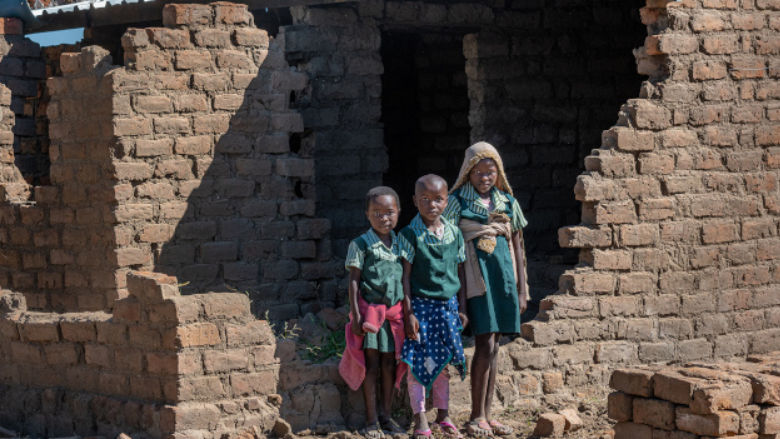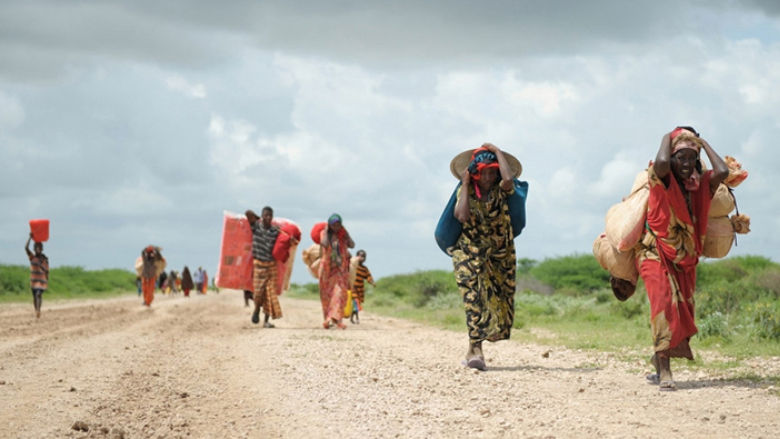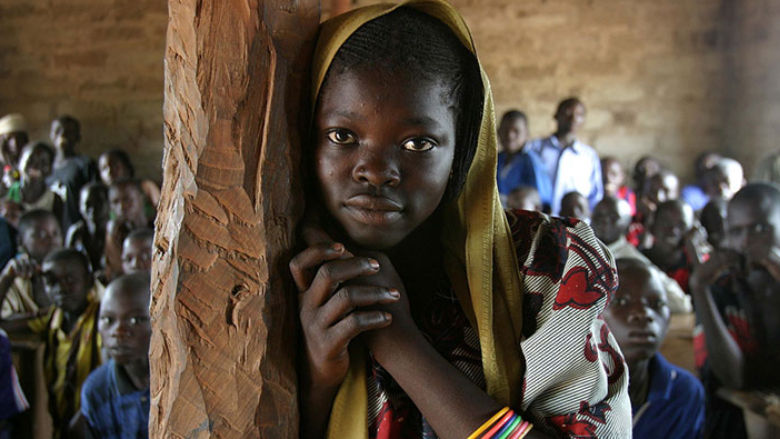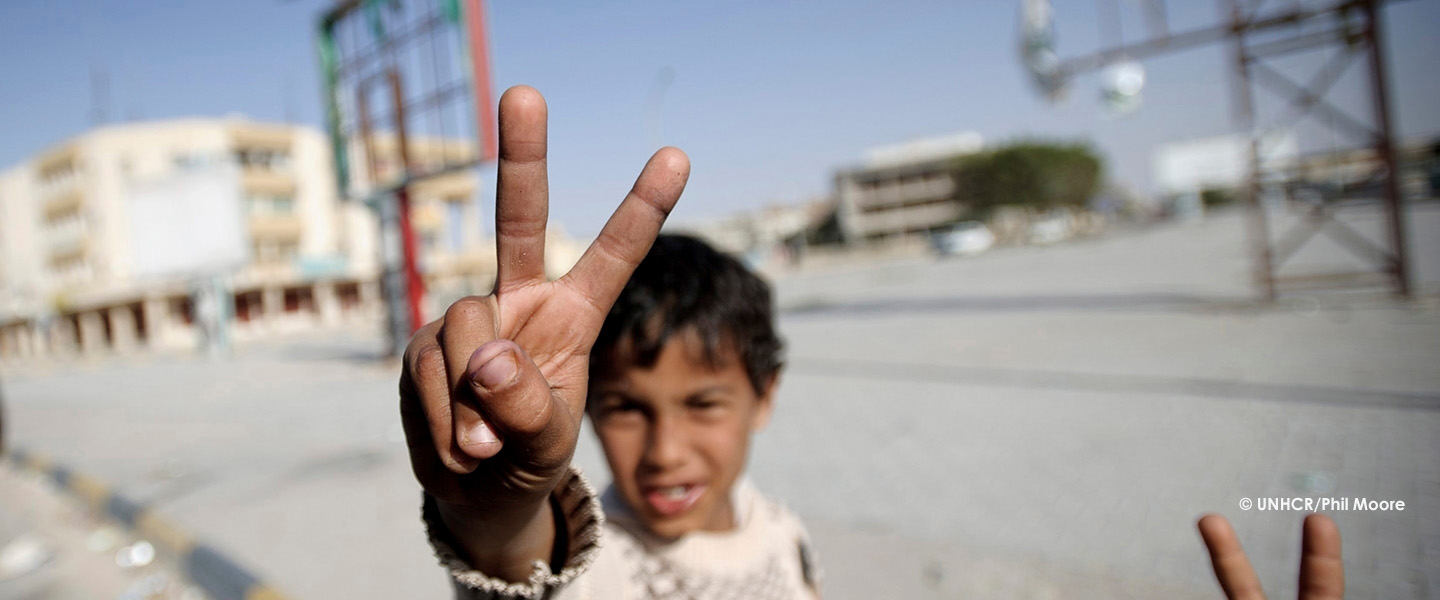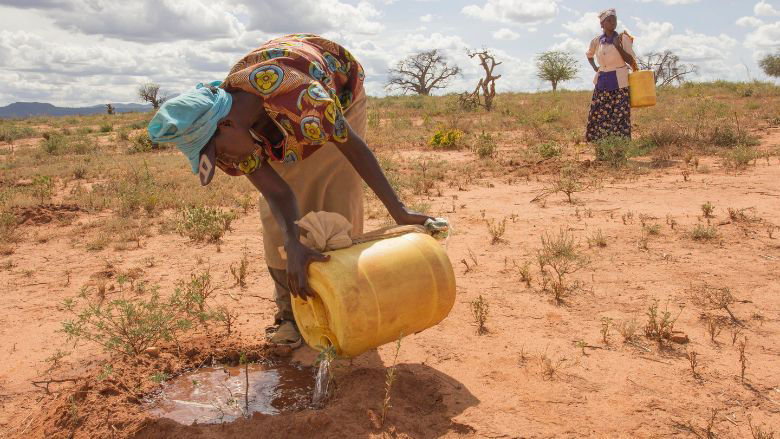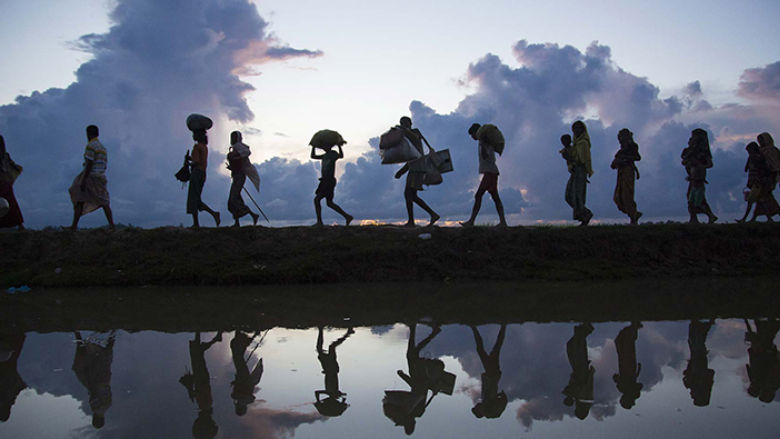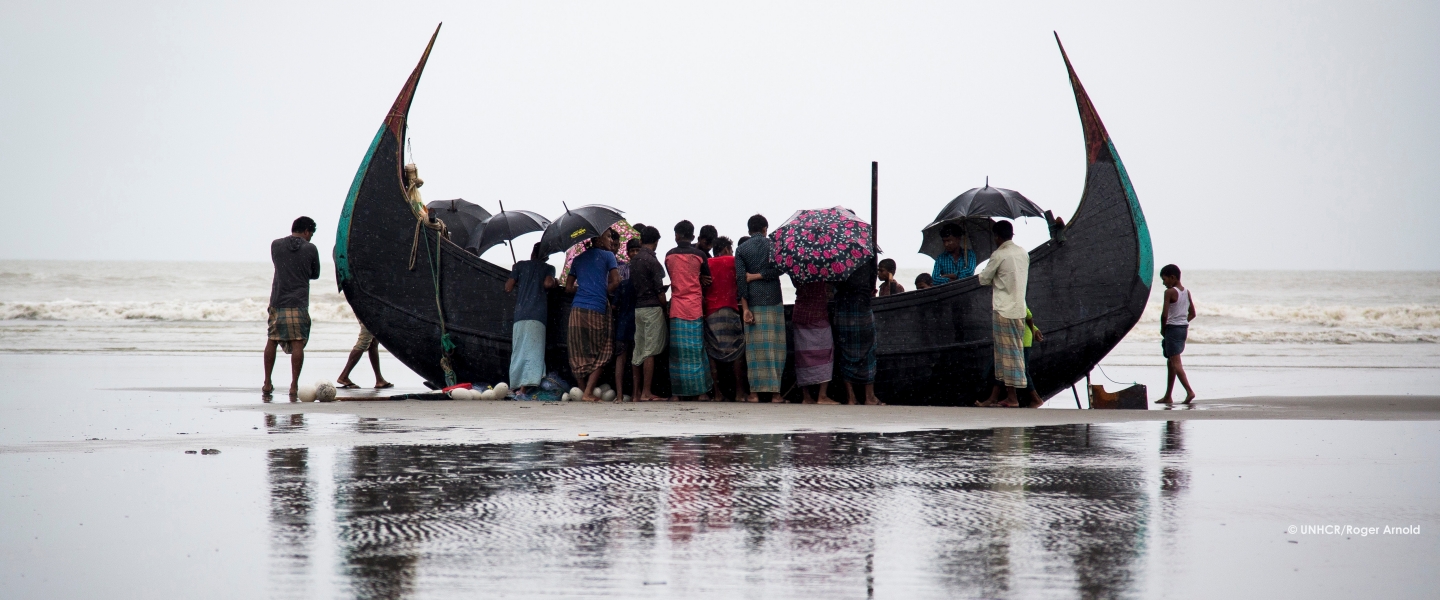Highlights from the World Bank’s operational work
Horn of Africa: Development Response to Displacement Impacts Project (DRDIP) is a $630 million regional operation in the Horn of Africa covering Djibouti, Kenya, Uganda, and Ethiopia. The project seeks to mitigate the social, economic and environmental impacts of protracted refugee presence while also maximizing the opportunities offered. Between 2017 and mid-2023, 5.5 million people, of whom 53 percent are women, have benefited from improved access to basic services such as education, health, water and sanitation. Livelihood activities have supported over 285,000 people with business grants and training on entrepreneurship, with 150,000 beneficiaries reporting an increase in income. 1,751 infrastructure subprojects targeting water, health and education facilities, and roads and markets have been completed, and another 595 are currently under construction. 397,000 people have been provided access to renewable energy. An additional $3.4 million in funding was provided for the project in Kenya in December 2022 to cover cost increases for schools, health facilities, and water systems subprojects caused by the COVID-19 pandemic. A $180 million second phase in Ethiopia commenced in October 2022 and will run until 2027.
Yemen Emergency Human Capital Project, approved in June 2021, provides essential health, nutrition, water, and sanitation services to Yemen's population in response to deteriorating health and nutrition conditions due to over eight years of conflict. As of February 2023, 450,000 people were provided with access to improved water and sanitation services in rural and urban areas. The project supports 72 hospitals and 2,198 primary health facilities, reaching 7.21 million people, of which 3.8 million are women. Over 300,000 women are receiving antenatal care during a visit to a health provider and over 1 million children have been immunized. Twelve percent of all health beneficiaries are internally displaced persons (IDPs). The project is being implemented by UNICEF, UNOPS, and WHO.
Democratic Republic of Congo (DRC): Between 2010 and 2021, the Agriculture Rehabilitation and Recovery Project in DRC supported farmers with improved agricultural practices and encouraged job creation, with particular attention given to youth and women, through civil works like rehabilitating and maintaining rural roads, directly benefiting over 160,000 people, 57 percent of whom are women. Road rehabilitation provided short-term employment for 7,422 people and improved access to 76 health centers and 205 schools, injecting $2.4 million into the local economy. Job creation has promoted economic stability and economic recovery leading to a reduced risk of youth joining conflict. Through the project, 360 hectares were reforested with increased tree covers; 90 percent of farmers were reached with agricultural assets or services; 5,605 tons of improved certified seed were produced annually; and 140,580 farmers adopted improved agricultural technologies. Storage silos for seeds and crops have also helped to reduce post-harvest loss by 50 percent and supported improved food security and nutrition outcomes. With a population of about 2 million, about 1,850 villages benefited from the rural roads’ rehabilitation, allowing farmers to easily transport their agricultural produce to markets. Increased agricultural productivity and production and access is helping the country address fragility.
Central African Republic: With about a quarter of its population displaced, the situation in CAR has the potential to destabilize fragile neighboring countries. The Bank’s Londo (“Stand Up”) Project provides temporary employment to vulnerable people through national labor-intensive public works programs –most recently, producing millions of face masks to control the spread of COVID-19. The project has successfully deployed in rebel-controlled areas and set examples in partnering with peacekeeping forces and the humanitarian community.
Sahel: The Sahel Women’s Empowerment and Demographic Dividend project (SWEDD) approved in December 2014 is helping empower women and adolescent girls, and increase their access to quality education and reproductive, child and maternal health services in Benin, Burkina Faso, Cameroon, Chad, Côte d’Ivoire, Guinea, Mali, Mauritania, and Niger. Over 675,000 girls have benefited from these interventions; more than 9,200 midwives have been trained to promote adolescent-friendly services and community-based distribution of family planning products; there are 451,000 new users of modern contraception; and close to 13,400 religious leaders engaged by SWEDD actively promote girls and women’s empowerment.
Jordan: The Emergency Health Project has provided critical primary and secondary health care services for poor, uninsured Jordanians and Syrian refugees since 2017, including maternal and child health, and treatment of communicable and non-communicable diseases at over 700 health centers and hospitals run by the Ministry of Health across the country. By March 2023, more than 8 million health care services have been provided, of which 4.4 million were for women and almost 250,000 for refugees. The project continued to provide primary and secondary healthcare services during the ongoing COVID-19 pandemic.
The project has helped establish the first systematic mechanism to track health services provided to vulnerable populations, including Syrian refugees.
See more World Bank results in situations affected by fragility, conflict and violence.
Sharing Knowledge to Promote Peaceful and Inclusive Societies
The Fragility Forum 2024 , which was organized as a hybrid event for brought together more than 7,000 participants from across the development, humanitarian, diplomatic and security communities to share their knowledge under the theme “Adapting and Innovating in a Volatile World.”
Last Updated: May 24, 2024

